MAAIF launches a feed processing plant and hatchery at Kasolwe Stock Farm. The Ministry of Agriculture Animal Industry and Fisheries through the National Animal Genetic Resources Center and Data Bank program has commissioned the livestock feed processing plant and the hatchery for poultry at Kasolwe Stock Farm in Kamuli District.
According to Rt. Hon. Rebecca Alitwala Kadaga the 1st Deputy Prime Minister and Minister in charge of East African Affairs who officiated the grand opening of the project has created a virgin market for cereal crops grown in the Busoga sub-region area which are a component in the production of pellets and mash to boost and promote value addition for livestock feed production.
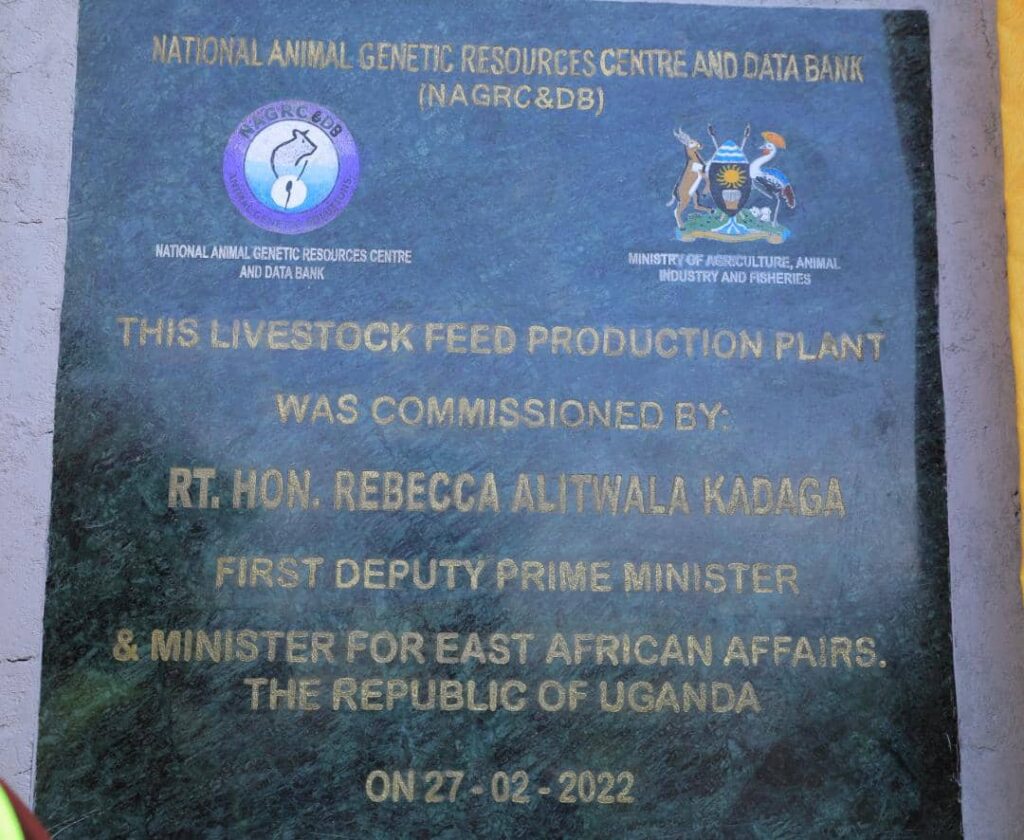
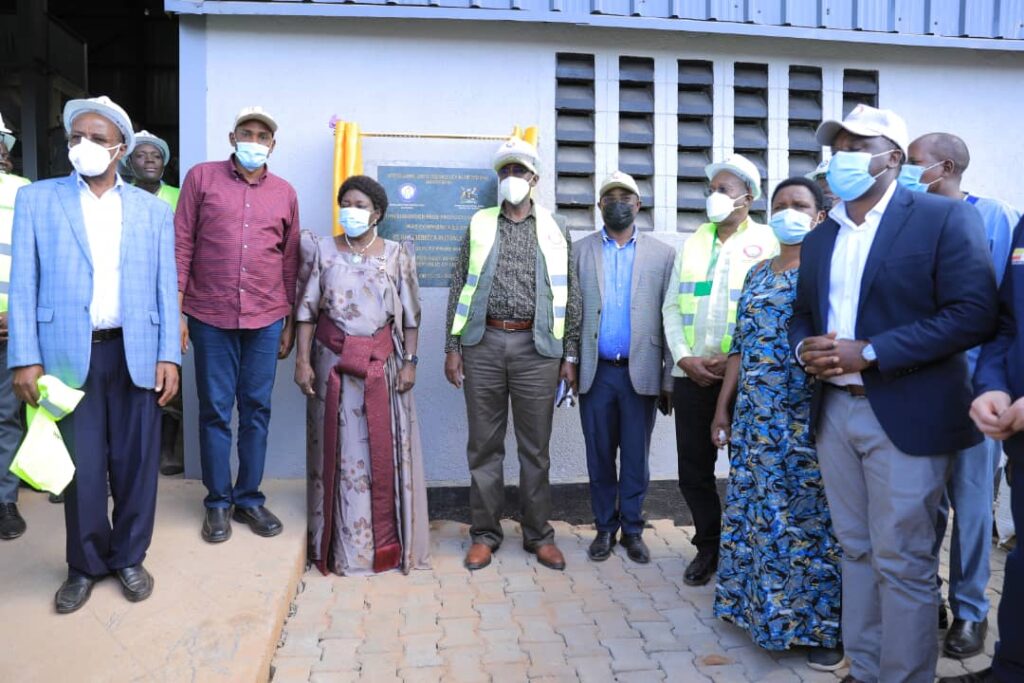
Kadaga has expressed her gratitude for the government’s strategy to revamp the Kasolwe Stock farm among other farms in the country. She has urged the natives to take the project as a precious stone to fight poverty in the Busoga sub-region with a strategy of utilizing the ready market to sell their cereals and also get interested in engaging in livestock farming.
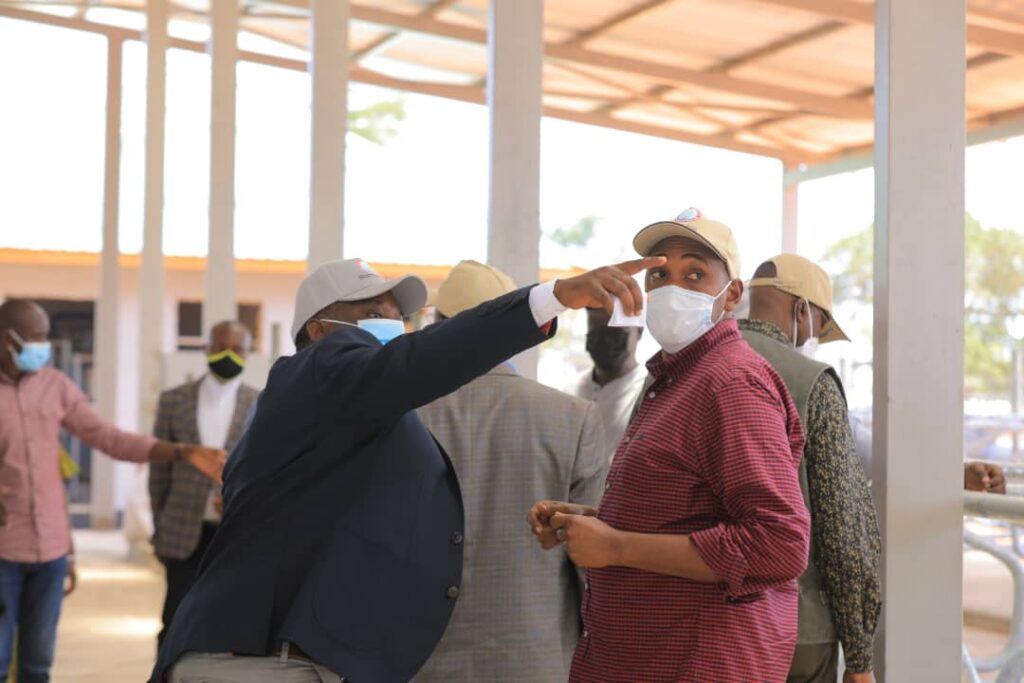
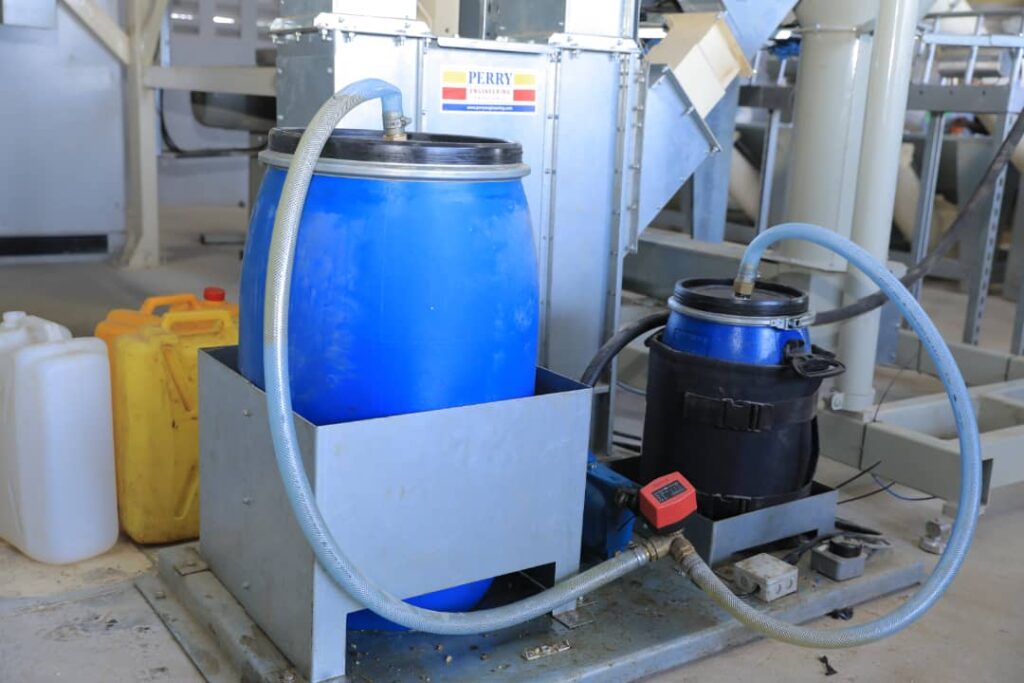
Hon. Frank Tumwebaze the Minister of Agriculture, Animal Industry and Fisheries says the livestock feed processing plant is a 5 metrics per hour/ 40 metric tonnes per day capacity plant which will provide a ready and consistent market for producers of maize, soya bean, sorghum, corn, and sugarcane offcuts where the local community will be free to drive in at any time with any of the package and they will be paid in cash at the feed mill.
Peter Beine the Executive Director at the National Animal Genetic Resources Centre and Data Bank (NAGRC&DB) revealed that the facility has got other projects under construction including a 300kg/ hr floating fish feed production plant, a 3000 metric tonne grain storage facility (sailos) to support the feed processing plant,
The facility has got a 500 capacity learning center with complete auditorium and lecture theatres that will help transform the Kasolwe stock farm into a knowledge transfer and learning center and a 200 bed capacity hostel with 150 self-contained rooms. The facility will also be open to the private sector for learning and skilling purposes in production of efficient and safe livestock feeds.
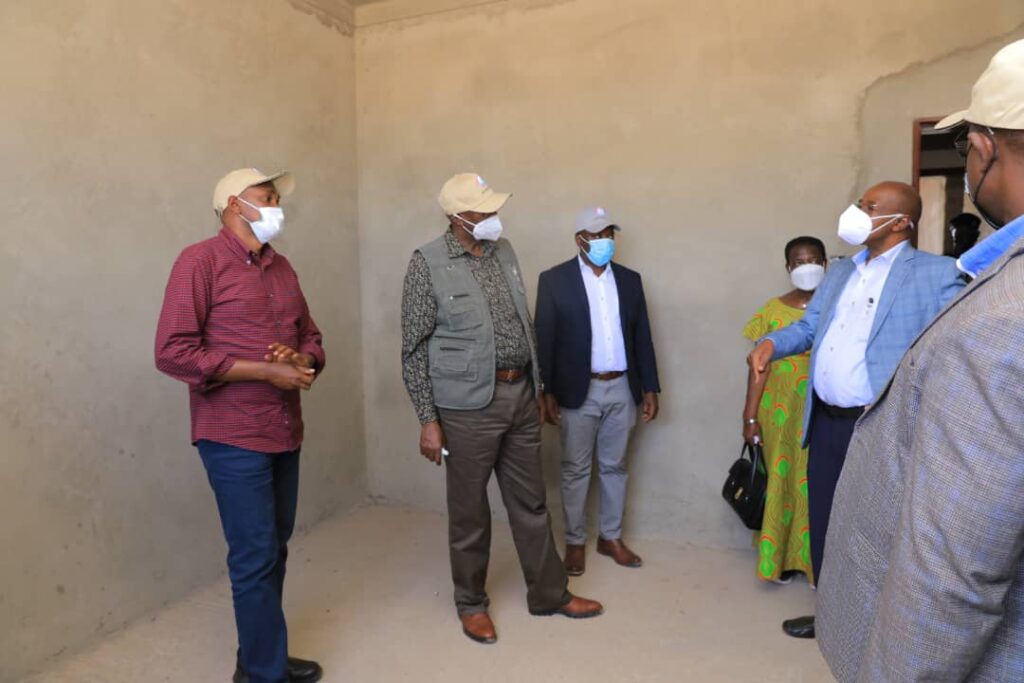
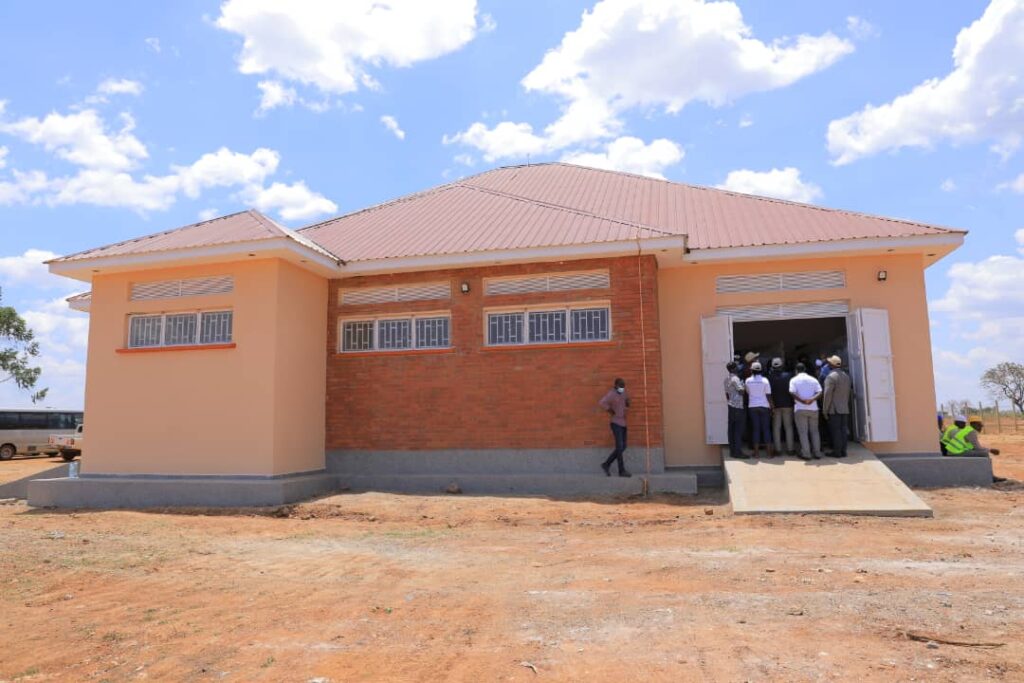
To demonstrate an intensive diary enterprise NAGRC&DB is building a 150 capacity diary production unit with an automated milking parlor with a swing over pipeline milking system and calf penns for training purposes and breeding work in order to readily avail diary breeding stock.
Government has imported pure breed 133 in-calf jersey and 124 urshers that will be stocked at Lusenke Stock Farm which has been revamped to a modern performance play race with a loading and offloading ramp and 35000 bell capacity hey storage bank, 4 pig sty structures, 3 breeding and 1 growers unit have been constructed.
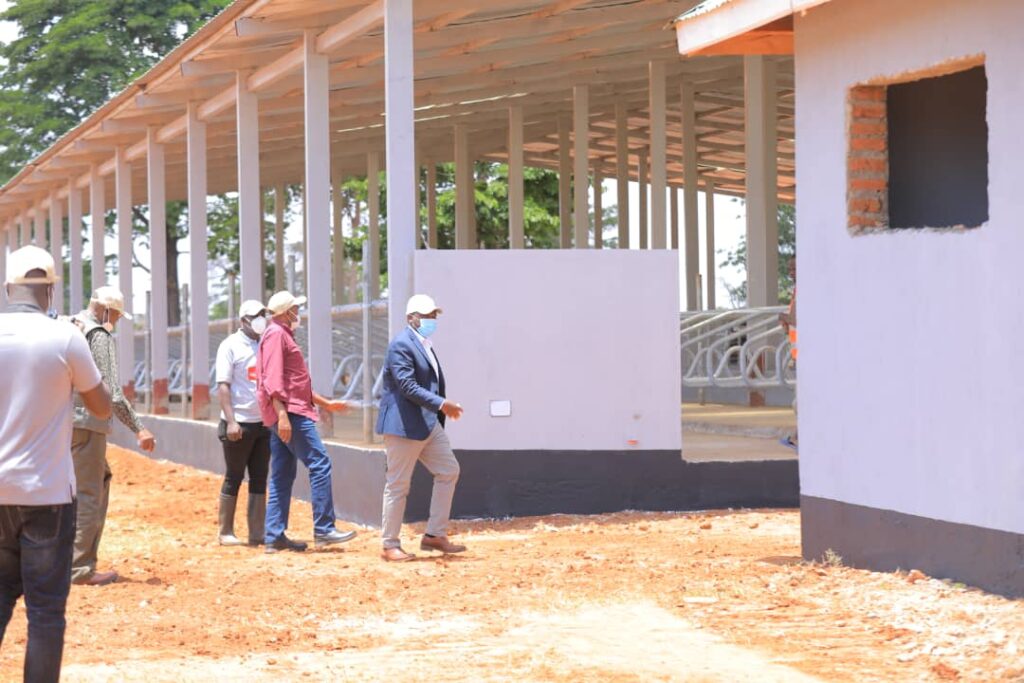
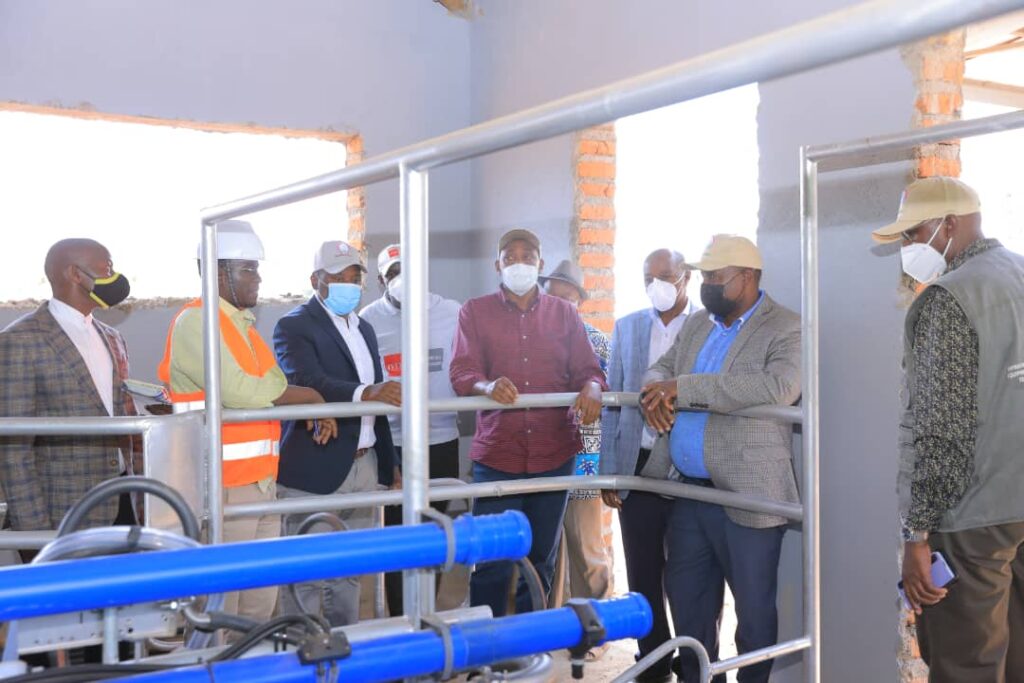
Beine says the assembling of a poultry hatchery is still ongoing by the suppliers and this will be done in the first week of March 2022.
“We have done four poultry units where we are having 43000 multipurpose scavenging parent stock special poultry variety which is able to mature to attain 3kg table weight in 5 months as compared to 2 years that is required for the indigenous breed and these are able to produce up to 200 eggs in 1 year as compared to the indigenous variety. This will help us respond to the aspirations of Parish Development Model where household must be supported to produce income. We shall be able to provide them with the stock that they need, Beine said.”
NAGRC&DB has completed works on 120 capacity goats structure 4 stocked breeding fish ponds of tilapia, milacap, African catfish for producing fish seed that will be given out to farmers.
Hon. Bright Rwamirama the minister in charge of Animal Industry at MAAIF says Government needed to build capacity to meet the internal demand for animal feed that is needed and breeding.
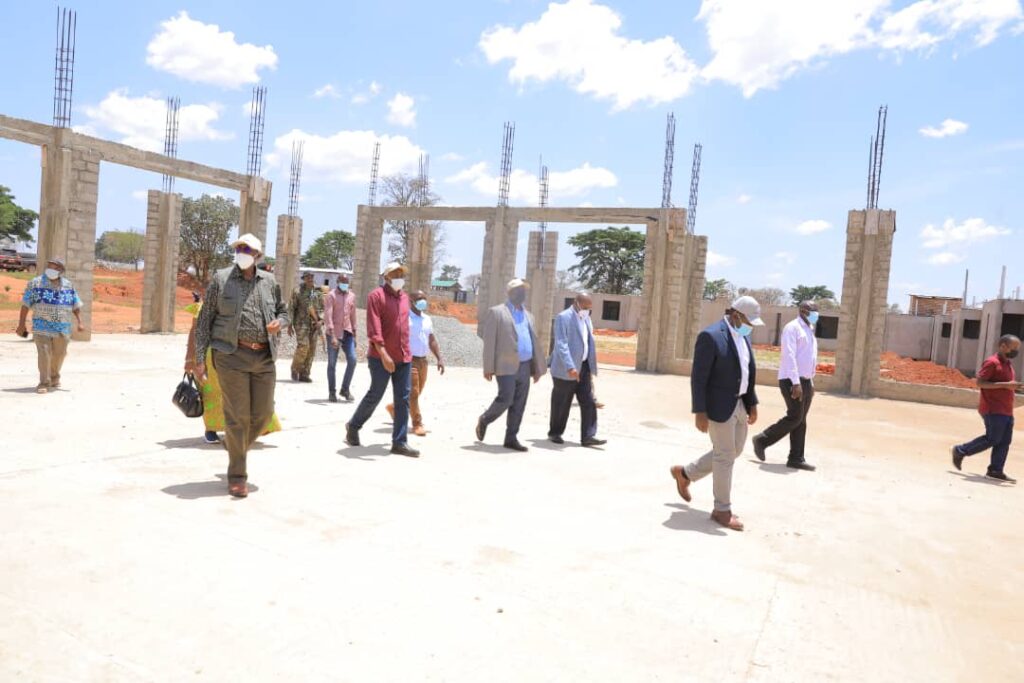
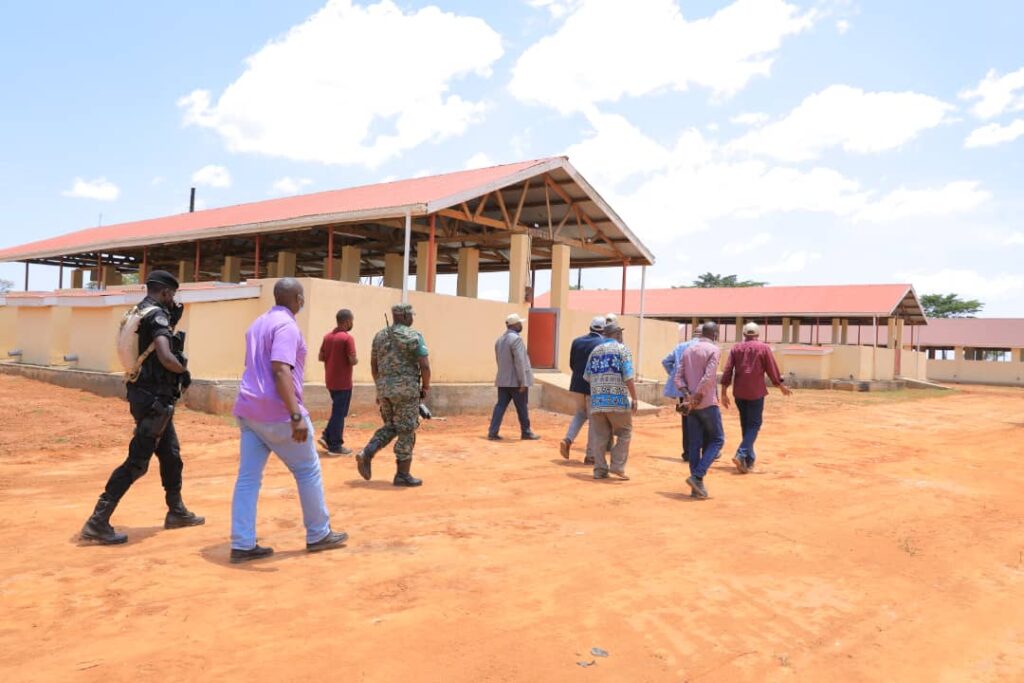
“The facility is going to benefit the whole country most importantly the ready market and the training of the community and breeding stock at very subsidized prices therefore take advantage of the would be multiplier effect since the farmers can get livestock feeds to support the whole production system where the country benefits all together, Rwamirama said.”
Animal feeds constitute 70-80% of production costs of all livestock enterprises and it should also be noted that the ministry has been spending close to 5 billion every financial year in procurement of animal feed but the reliability in terms of quality and consistence in time of supply has not been the best.
Dr. Johnson Nkuhe the board chairman of NAGRC&DB has however expressed his worry about people who have grabbed land belonging to stock farms and government ranches around the country. He says many of the ranches have been encroached on and this has stifled NAGRC&DB programs.
NAGRIC is set to revamp the remaining 12 stock farms to become centers of excellence with an automated water reticulation system to all livestock production units and opened farm roads, farm manager residential houses and junior staff quarters for example; Uganda being a number one consumer of pork and number two producer of pork products after South Africa, Njeru stock farm in Jinja will soon be a center of excellence mainly for piggery and pork production.














































Discussion about this post